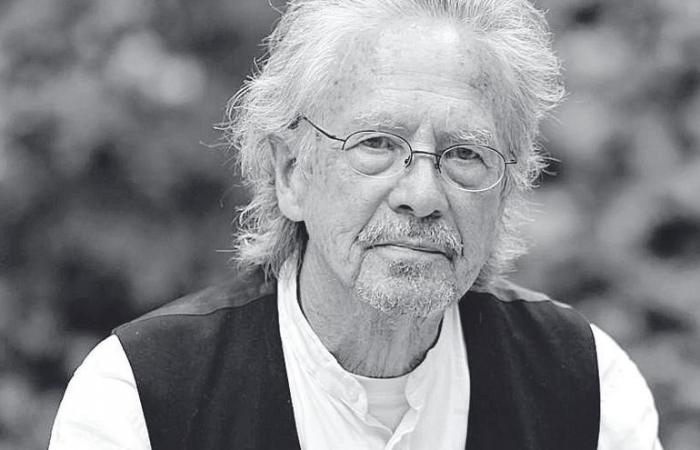This is what I know about Peter Handke (Griffen, Austria, 1942). I know that he begins each day by translating some verses from Pindar. My life in the other country. A story of demonsIn fact, he begins it with a quote from the Greek poet. Like in A writer’s afternoon, it’s about concentrating the day. Not the so-called any-day, but all the days gathered in the Arcadian formula of the great celestial day.
I know that Peter Handke He is a walker. This book – like almost all of his books in general, especially the last ones: see The fruit thief and Essay on the mushroom madman– is also a walk. I know that Peter Handke He owed his first celebrity to a play, Insults to the public, where, indeed, the public was insulted. This book begins with a “possessed man” who shouts at those who approach him sometimes in incomprehensible languages.
After those Insults to the publicHandke, the favorite –accidental– son of the European leftinsulted the public in another way: he attended the funeral of Slobodan Milošević and there he read some heartfelt words. She was also “one of more than 1,600 people who were named defense witnesses in the trial of the International Tribunal for Yugoslavia in The Hague against Milošević“. That is to say: he was one of the more than 1,600 people – actually less: many were deleted – who cared about being there.
And although he explained his position regarding Milošević and the Yugoslavian war (see asking through tears, The trip in the canoe), for the world Handke was portrayed as the man who had turned his back on history, on good and honest citizens and on good and honest people (that is to say). political classand, practically, he had gone from being part of the great country in general to occupying another country: in short, he was suddenly that incomprehensible demon who had insulted the public.
aerial books
I know that Peter Handke has written poetry. In fact, his books are becoming more and more airy. My day in the other country It is an epic poem where each paragraph is a stanza. (And whoever tries to understand it as a story is lost. Lost in what country? Maybe in the other country of the other country… which is neither here nor there).
Peter Handke actually writes in classical Greek, because he is a classical Greek who thinks in classical Greek.
I know that Peter Handke He wanders through life (wandering is not the word) with a pen in his pocket, and that of that pencil that is so frequently embodied in other pencils he has written a beautiful biography: History of the pencil. In Soria, for example, he would stop to write with that pencil about the moss that covered a stone, and the people who passed by him (see, I think, Essay on jukebox) stopped to observe him. He then left the moss and wrote about those individuals detained next to him before the mystery of a man who contemplated a stone.
In that strange collection of poems on the pencil, full of loose verses (one had to imagine the invisible poem that surrounded him), he wrote things like this: “I no longer want to contemplate the world, but rather summon it in its forms.” And this: “Where there is spirit, there should not be any more dialect.” History of the pencil It was published 40 years ago. Now, 40 years later, My day in the other country: a world summoned in its forms that speaks in the dialect of the spirit.
I know that Peter Handke He writes in German, but that is just a veneer. In fact, she writes in classical greek, since he is a classical Greek who thinks in classical Greek. Then things arrive (for Handke) in a language of the future. And yet It’s like Homer observing the honey craters in the cave of dreams, and also (because Latin is nothing more than a dreamed Greek) a Pliny the Younger who writes enthusiastically and at the same time from a serene enchantment. A book like this cannot come from another man or from another place. My day in the other country: a book for serene, enthusiastic Greeks, for also enthralled Greeks.






